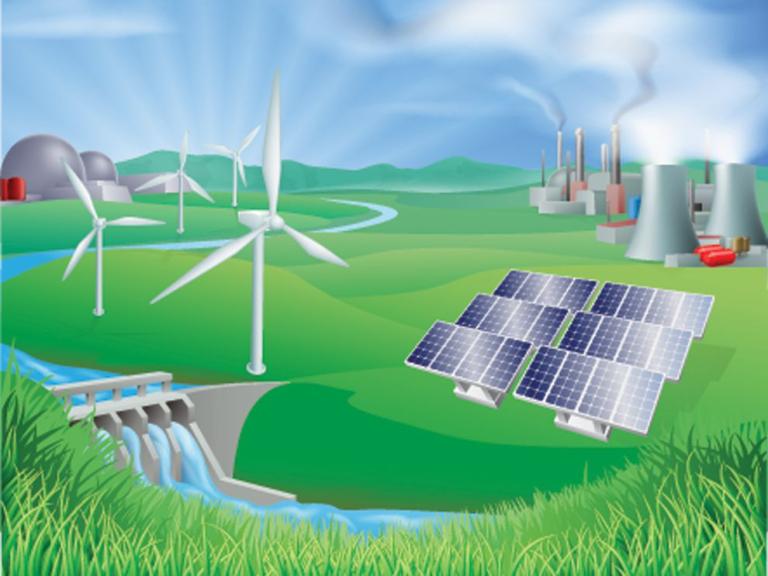The world is burning up. That is, the average atmospheric temperature around the world has increased almost two degrees Fahrenheit in just over the past century. It’s the result of the Industrial Revolution in which we humans have been burning so much fossil fuel–namely coal, petroleum, and natural gas–to heat our homes, drive our cars and trucks, fly in airplanes, produce our electrical power, conduct military operations, and the list goes on and on. But there are still millions of deceived souls who think humans are not heating up the world. These climate deniers are going to have eat crow.
In a very short space of time, national governments are passing laws and setting goals to cut down fossil fuel emissions that are responsible for global warming. And now, the corporate world is getting on the band wagon. Today, three historic things happened to the oil and gas industry–amazingly all on the same day–that will help accelerate the movement to cut back on global warming with renewable fuels, though carbon capture of emissions may have a future as well.
First, a court in the Netherlands, which is in the European Union, ruled today that the Royal Dutch Shell Corporation, which has always been headquartered there, must reduce the emissions resulting from its products sold in the Netherlands by 45% by the year 2030 compared to 2019 levels.
Second, shareholders of Chevron Corporation, the second largest oil company in the U.S., voted for the company to change direction and start reducing its production of oil and gas products that it sells in order to reduce its contribution to global warming.
For forty years I lived in Houston, Texas, not far from the Houston Ship Channel, where oil is king. I have viewed for many years the American oil and gas industry like the American tobacco industry. The latter denied for decades that it was killing people with its tobacco products until the government and courts decided otherwise. That’s what is now starting to happen to the oil and gas industry.
Third, Exxon Mobil–the biggest oil corporation in the U.S. and not long ago the largest U.S. corporation for many years–had to eat crow. Shareholders elected two climate activists onto its Board of Directors in an effort to force Exxon Mobil to turn to producing renewable fuels instead on only oil and gas, as it has been doing. Other big oil companies had already been moving in this direction, such as the UK’s BP (British Petroleum). This happened largely due to a new hedge fund, Engine #1 and the three largest mutual fund companies in the U.S. who are all shareholders of Exxon Mobil: Vanguard, Black Rock, and Fidelity. It was a huge slap in the face for Exxon’s chairman of the board and CEO Darren Woods who has been resisting this change.
Being a Christian, I think people should try to be good stewards of planet earth which God created for us. To do otherwise is not loving our neighbor as ourself, especially regarding future generations. Of course, trashing the earth is a complex problem that needs much discussion that I can’t go into in this short blog post. I just believe that people should make an effort to leave this planet the way it was before we lived on it.
Finally, I have blogged multiple times about what the Bible’s most apocalyptic book, Revelation, says about this subject concerning The Judgment. It says concerning “the time for judging the dead” that angels in heaven will praise God “for destroying those who destroy the earth” (Revelation 11.18 NRSV). Pretty sobering.














